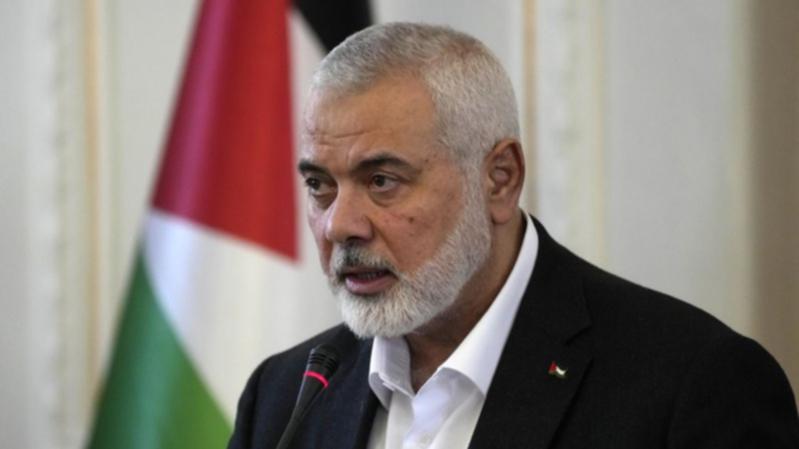EDITORIAL: To Haniyeh, Gazan deaths were collateral damage
EDITORIAL: Whether Ismail Haniyeh’s death will have a material impact on the war in Gaza remains to be seen. Likely another, who has no interest in peace, will simply slot into his place.

It’s impossible to quantify the number of deaths assassinated Hamas leader Ismail Haniyeh bears responsibility for.
The 1200 Israelis murdered in Hamas’s October 7 attacks, certainly.
And the many thousands of Gazans killed, used by Hamas as human shields, in the course of five wars he has overseen with Israel also stain his soul.
Sign up to The Nightly's newsletters.
Get the first look at the digital newspaper, curated daily stories and breaking headlines delivered to your inbox.
By continuing you agree to our Terms and Privacy Policy.His own people, collateral damage in the pursuit of his terrorist regime’s mission to wipe out Israel.
Iran’s Islamic Revolutionary Guard Corps says Haniyeh was killed by a “Zionist raid” on a residence in Tehran early on Wednesday. Only hours earlier, Haniyeh had met with Iran’s supreme leader Ali Khamenei and attended the inauguration of the country’s new president Masoud Pezeshkian, who replaced Ebrahim Raisi, killed in a helicopter crash in May.
So far, Israel has not claimed responsibility for Haniyeh’s death or responded to requests for comments.
But his apparent assassination came just hours after an airstrike on a block of flats in Beirut, an operation in which Israel claimed to have killed Hezbollah’s top military commander Fuad Shukr.
Expect many to say that the deaths of Haniyeh and Shukr will “further inflame tensions”.
But the truth is that tensions are already at boiling point. People are already dying by the tens of thousands. Hamas and its backer Iran have no plans for that to change.
Since his death, some have moved to cast Haniyeh as a relative moderate.
Tough talking perhaps, but a pragmatist at heart. Someone who may be willing to help broker a peace deal, or at least a temporary cease-fire.
But there’s been precious little to show for that. Ten months on from the October 7 massacre and ceasefire talks still seem stuck in a stalemate.
Just a fortnight ago, Haniyeh was quoted as saying Hamas would halt negotiations due to Israel’s “lack of seriousness, the continued policy of procrastination and obstruction, and the ongoing massacres against unarmed civilians”.
In 2018, the US Department of State labelled Haniyeh a “specially designated global terrorist” — someone whose goal was to threaten stability in the Middle East and undermine the peace process.
As leader of Hamas’s political wing, Haniyeh may have been less militaristic than the terrorist group’s leaders inside Gaza. But he had a key role in building up Hamas’ military capacity, including through securing millions in military aid from Iran.
Before he left Gaza to continue leading Hamas in exile, Haniyeh was accused of diverting humanitarian aid intended for suffering civilians towards its fighters. That’s a claim Hamas denied at the time, but there is little doubt that Haniyeh bears significant responsibility for the suffering of the Palestinian people over many years.
Whether his death will have a material impact on the war in Gaza remains to be seen. Likely another, who has no interest in peace or in stopping the suffering of Palestinians, will simply slot into his place as has happened so many times before.
Responsibility for the editorial comment is taken by WAN Editor Christopher Dore
